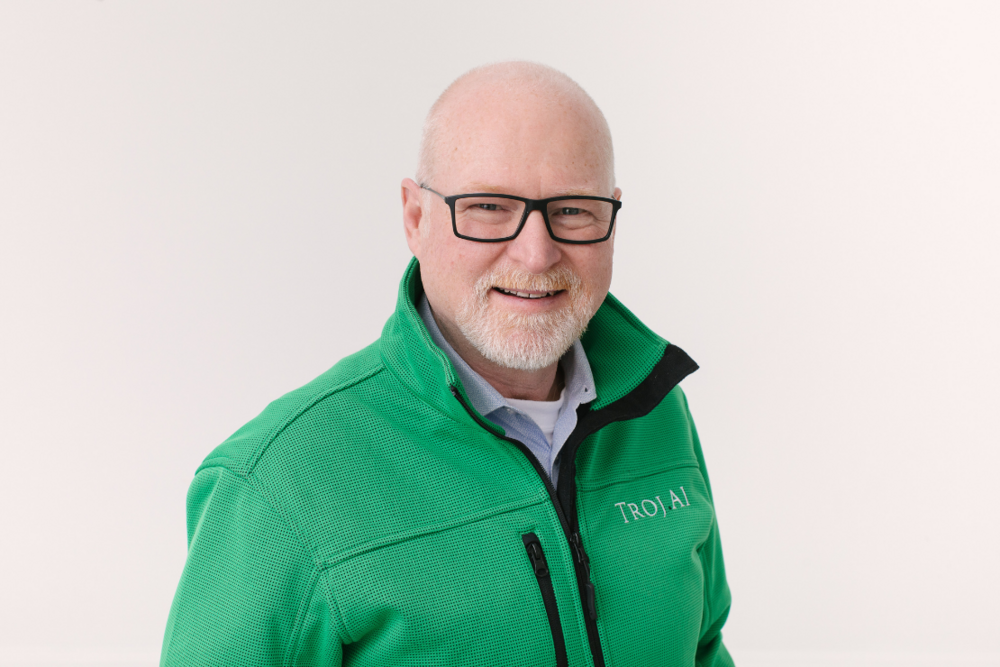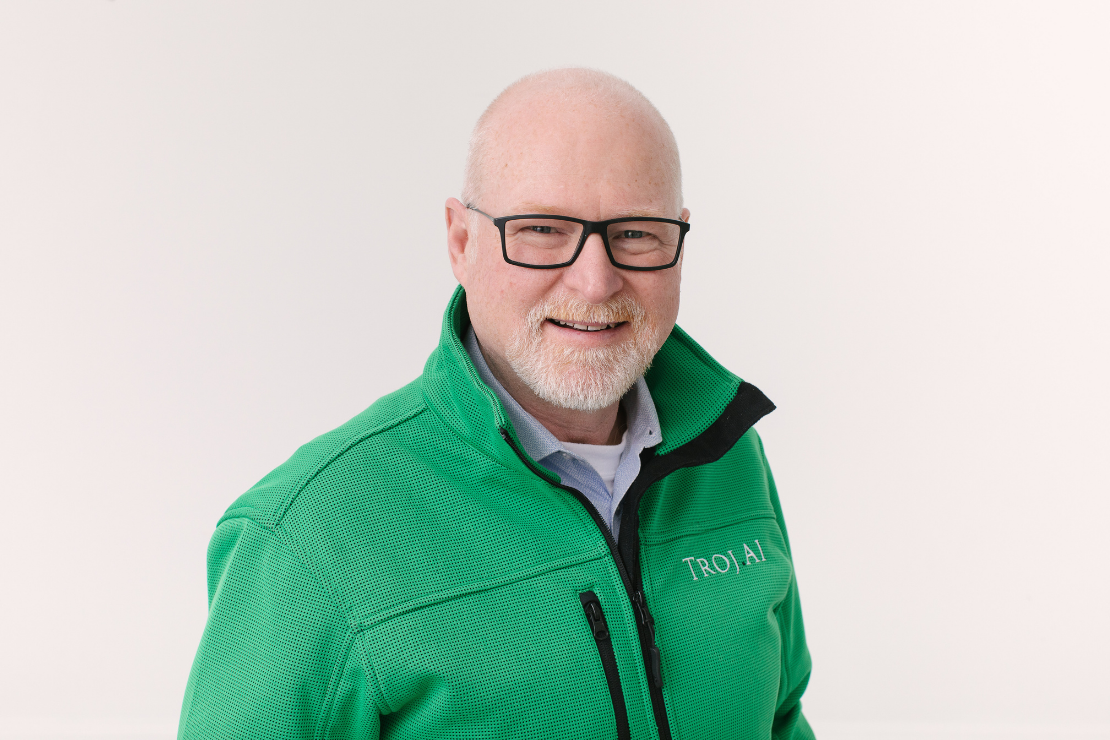Is Techstars Really Worth It?
Jan 20, 2021

By Stephen Goddard, Founder of TrojAI and graduate of the 2020 Techstars Montreal AI Accelerator
Is Techstars Worth 6% Of My Company?
Is a Techstars accelerator worth 6% of my company? This is the question I asked myself going into the Techstars Montreal AI Accelerator, and if you’re considering any Techstars accelerator, I bet you’re asking it, too.
If you ignore the fact that Techstars has run over 2000 accelerator programs in the past 15 or so years across 15+ countries and has worked with 6,000+ founders who have raised over $11 billion in funding and are worth over $35 billion in market capitalization, iff (if and only if) you ignore all that, you might ask if Techstars is really worth giving up 6% of your company for access to the program?
And of course, you might have to discount any answer to that question if it comes from a recent program participant who was told they are among an elite group of less than 1% who applied and were accepted into the Techstars program, setting up this founder for his own confabulation about the program to justify the 6% that is already out the door.
So how do you evaluate the success of Techstars beyond the numbers? How do you look past the kool-aid drinking founders? Maybe ask a near 60-year-old cynical founder with a chip on his shoulder — like, for example, me — if Techstars is really worth it.
Interested in applying to a Techstars accelerator? These helpful articles will guide you through the process. Then apply here!
The Value of Mentor Month
In weeks two and three of the program, Techstars scheduled fifty virtual, 20-minute meetings with prospective mentors. Fifty meetings where we had to describe the problem we were solving. Fifty meetings to explain the potential market and demand for our solution, along with the expertise of our team to solve challenges and sell the solution. And fifty meetings where we were selling our concept, defending our assumptions, and demonstrating our ability as founders to process, respond, and execute on the fly. And, while trying to cover all this ground in each 20-minute introductory meeting, we also had to assess the fit of each prospective mentor we were meeting to perhaps become one of the small group of mentors who we wanted to work with intensively through the accelerator, and maybe even beyond.
So began the Techstars process of accelerating our startup. The density of information that we needed to convey and process, together with the pace of those meetings over two weeks, not only set the tone for the entire program but it indelibly imprinted upon us a sense of urgency that we will strive to maintain in the months and years ahead. With nearly 20 years of startup experience, it’s not as if I wasn’t prepared for the speed and effort required to get a startup off the ground, but Techstars Montreal AI imposed a pace of action beyond that expectation, while challenging founders on the relevance of every decision and action taken. It pushed our entire cohort of founders, all of whom were impressive, highly capable entrepreneurs, to a point that surprised me.
Those fifty meetings also introduced us to a caliber of mentor that I have never seen in any other accelerator, incubator, or program. The level of experience and expertise of the mentors was matched only by their generosity to support and advance our success. Our company worked with four tremendous mentors who generously shared their time, insights, and networks as they helped us navigate weekly challenges as we launched our startup.
Perfecting the Pitch
And finally, those fifty meetings introduced us to what would be the relentless pursuit of perfecting the three-minute pitch. Like most accelerators, the program culminates with Demo Day, and from day one of the program we were told that our Demo Day pitch was to be three-minutes long. The overview that we provided to prospective mentors during those fifty meetings slowly evolved over the ensuing weeks of the program as we reworked the pitch script after every practice session (two to three times a week as we neared the end of the program). We also had to record our pitch for those who could not attend the live presentation, which meant, in our case, some 24 additional pitch practices as we attempted to record the perfect pitch.
Providing Pace and Purpose
Pace and purpose: these were the core of the program for our company. We were pushed to maintain an exceptional pace to meet and talk to prospective clients, industry experts, investors, while also attending Techstars’ workshops on subjects such as messaging, raising capital, negotiating, and leadership (I could write an entire blog just on the Conscious Leadership Program), all the while having weekly strategy sessions with our mentors and reporting back to the Techstars leads on our progress and asking for help as needed.
Beyond simply taxing our bandwidth to execute, the qualitative demands also pushed our limits, as we attempted to assess every action each week as to whether it met a relevant intent toward the stated objective of the business. Every Monday we established KPIs for the week and every Friday we reported our progress against those KPIs, in front of our entire program cohort.
Managing Director: Part Cheerleader, Part Taskmaster, and Great Coach
“You’re exactly where you need to be in this process. You can’t skip a step.”
— Bruno Morency
Driving this pace and purpose are in part the mentors, but in a much more significant way are the Techstars program leads and associates, and in our case the managing director of the Montreal AI program, Bruno Morency, and his powerful 2IC, Justine Marchand. Part cheerleader and part taskmaster — and great coach — Bruno drove the program pace while challenging us to prioritize and focus on critical components of our business. He nitpicked claims made in our pitch, questioned slides and images chosen for our deck, forced us to focus on measurable results each week, and when we could hardly stand to be challenged on one more point, he would deliver an appreciative compliment to the work we were doing. Bruno often reminded us that we were exactly where we needed to be in the process, thus ensuring we would return the next day to do it all over again.
While I cannot speak to all of the Techstars programs, we did have the opportunity to meet a few other managing directors of other Techstars programs and it seems that a similarly impressive calibre of MDs can be found at other locations too, where I am sure participants might feel a similar like/loath respect for their MDs.
Building Bonds In a Remote Accelerator
Finally, the staff and associates at the Montreal AI program are excellent, particularly when you consider that in 2020 they had to reimagine how a program that was designed to be delivered in-person, could be delivered entirely in a virtual format. The team at Techstars Montreal AI did an incredible job of delivering the program remotely while still managing to build some lasting bonds between the staff, associates, and founders that I am sure will endure for a very long time to come.
Being pushed to work faster and smarter is not surprising for an accelerator — what is surprising is how effective the Techstars’ program was at establishing that expectation. I am impressed with how the program is designed not just to teach, but to instill an intent and practice that is reinforced at every step of the process — all with a positive “Give First” culture. There is the network too, the reputation, and validation that helps with investors and customers, which all helps to contribute to the value of the program… but at the end of the day, the success of the Techstars accelerator as a program is in its pace and purpose, which started with those fifty mentor calls at the beginning of the program.
So, was it worth 6% of our company? Yes, yes it was. As a cynical entrepreneur would I have preferred to negotiate to 4% or 5%? Probably — but I’ll still say it was great value at 6%☺
A version of this article appeared on TrojAI’s Medium blog.
About the Author

Stephen Goddard
Stephen Goddard is Cofounder & COO at TrojAI. He has over 20 years experience as an entrepreneur, along with management consulting and corporate finance advisory experience. With international banking experience in Tokyo, Toronto, and New York and senior management/advisory roles across multiple industries, Stephen remains most proud of his 8th place results at 2008 World Pizza Championship in Italy. He holds a BBA from University of New Brunswick and an MBA from Queen’s University.
